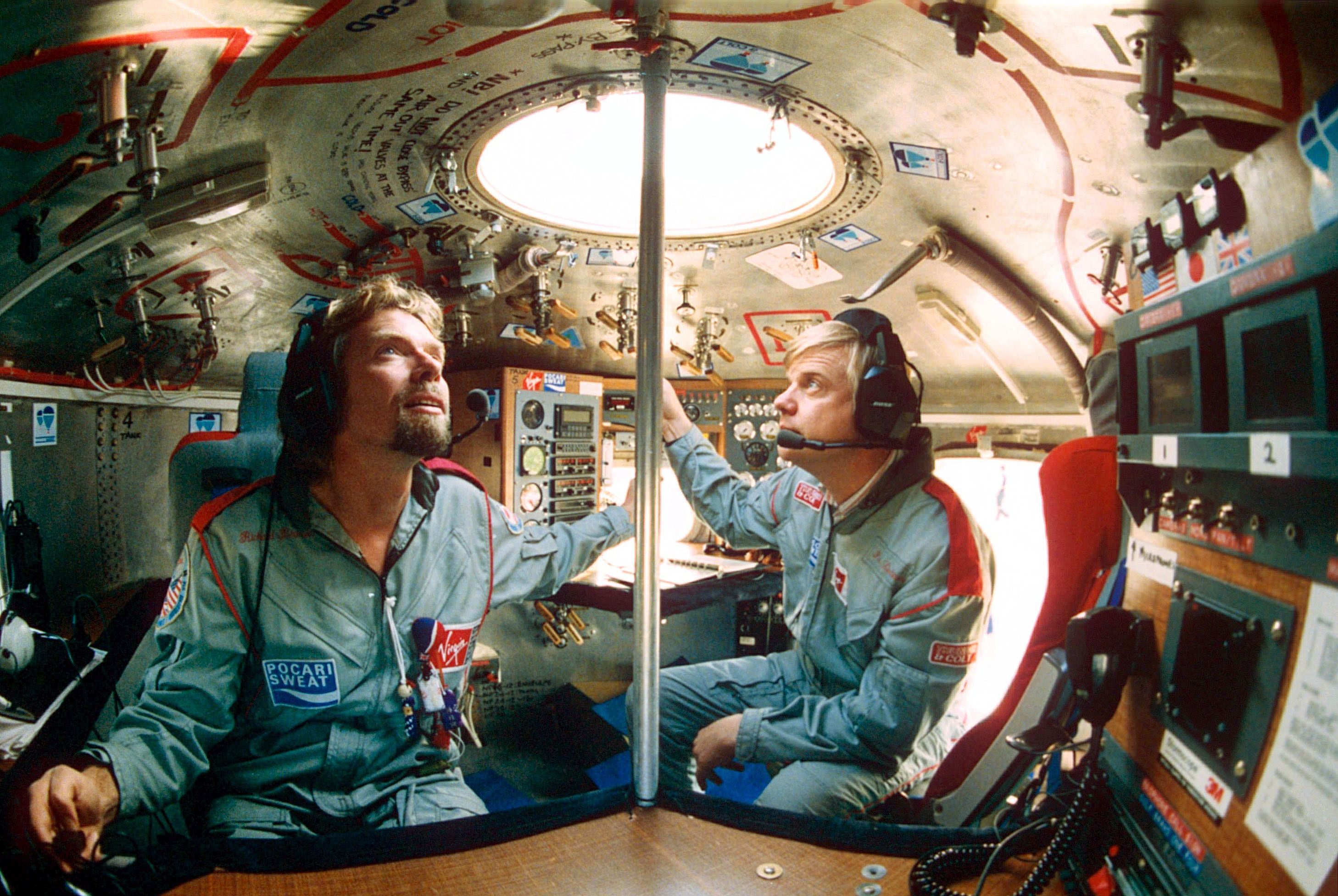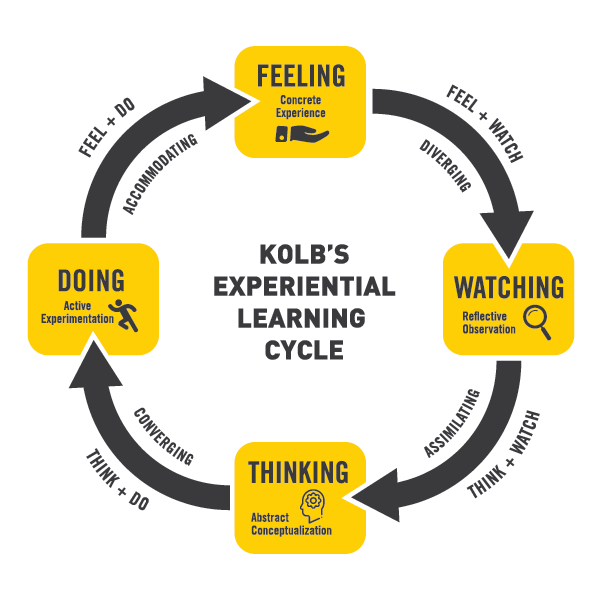Unlocking Leadership Potential
Picture this: Sir Richard Branson, the billionaire entrepreneur and founder of the Virgin Group, finds himself dangling from a hot air balloon, thousands of feet above the Pacific Ocean. In 1991, Branson's attempt to cross the Pacific in a record-breaking balloon flight nearly ended in disaster when a fuel leak caused the balloon to lose altitude rapidly. Fortunately, he managed to climb up and cut away the leaking fuel pod, saving himself and the mission. Branson attributes his success in business, in part, to his adventurous spirit and the lessons he's learned in high-risk situations like this one.

What if we told you that you too could develop better leadership skills through adventure travel? The science of experiential learning suggests that engaging in challenging and thrilling activities can help you grow professionally and personally. In this article, we'll explore the connection between adventure travel and leadership development, and show you how activities like sailing can turn even the most dedicated landlubber into a more effective leader.
The Science of Experiential Learning
Experiential learning is a process of gaining knowledge and skills through direct experience, as opposed to traditional classroom or lecture-based learning. It's a hands-on approach that emphasizes learning by doing and reflecting on the experience. One of the key models of experiential learning is the Kolb Learning Cycle, developed by psychologist David Kolb. The cycle consists of four stages:

- Concrete experience: This is the stage where you actively participate in an activity or have a new experience.
- Reflective observation: After the experience, you reflect on what happened and how you felt during the activity.
- Abstract conceptualization: You then analyze the experience, drawing conclusions and forming new ideas based on your observations.
- Active experimentation: Finally, you apply what you've learned to new situations, testing out your ideas and adapting them as needed.
When it comes to adventure travel, the Kolb Learning Cycle can be applied to the various challenges and situations you encounter during your trip. As you tackle these challenges, you gain valuable insights that can be transferred to your professional life.
How Adventure Travel Enhances Leadership Skills
Adventure travel can help you develop and strengthen several key leadership skills. Here's how:
Building resilience and adaptability:
When faced with the unexpected, like a sudden change in weather or a navigational mishap, adventure travel forces you to adapt and find solutions. This resilience and adaptability can translate into your ability to manage change and uncertainty in the workplace.

Developing problem-solving and decision-making abilities:
Adventure travel often requires quick thinking and decisive action. As you learn to evaluate situations and make informed decisions under pressure, you hone your problem-solving and decision-making skills—crucial competencies for effective leadership.
Improving communication and collaboration:
Whether you're climbing a mountain or sailing a boat, teamwork is often essential for success. Adventure travel provides ample opportunities to practice and refine your communication and collaboration skills, which are vital in leading a team or working with colleagues.
Boosting self-awareness and emotional intelligence:
Adventure travel can push you to your limits, revealing your strengths and weaknesses. This increased self-awareness, along with a better understanding of your emotions and how to manage them, can lead to higher emotional intelligence—a key trait of successful leaders.
Inspiring creativity and innovation:
When you're immersed in new environments and experiences, your brain is stimulated to think differently and approach problems from new angles. This can lead to increased creativity and innovation, essential qualities for staying ahead in today's fast-paced business world.
Sailing Lessons: A Unique Adventure for Personal Growth
Sailing, in particular, is an excellent adventure activity that offers myriad opportunities for experiential learning and leadership development. Here's why sailing should be on your bucket list for personal and professional growth:
Mastering the art of delegation and empowerment:
As a skipper, you'll learn to delegate tasks to your crew, empowering them to take on responsibilities and make decisions. This mirrors the role of a leader who must trust and rely on their team members to achieve shared goals.

Enhancing situational awareness and strategic thinking:
Sailing requires constant awareness of your surroundings, from changing wind conditions to the position of other boats. By developing your situational awareness and ability to anticipate and respond to changes, you'll become a more proactive and strategic leader.
Building confidence and assertiveness:
Taking charge of a sailing vessel and making critical decisions to ensure the safety of your crew can significantly boost your confidence and assertiveness, essential traits for effective leadership.
Learning to manage stress and maintain composure:
Sailing can be a high-pressure environment, particularly when the weather turns rough or emergencies arise. Learning to stay calm and composed under pressure will serve you well in your professional life, where stress and challenges are inevitable.
The Landlubber's Path to Experiential Learning: Sailing Lessons for Beginners
Never set foot on a boat before? Don't worry—sailing lessons are the perfect way to dip your toes into the world of adventure travel and experiential learning. With experienced instructors guiding you every step of the way, you'll learn the ropes (literally) and discover the joys of sailing while developing valuable leadership skills.
Here are some key elements to look for when choosing a sailing school:
Qualified and experienced instructors:
Look for schools with certified and experienced instructors who have a passion for teaching and a proven track record of success.
Small class sizes:
Smaller classes allow for more personalized instruction and hands-on learning, ensuring you get the most out of your sailing lessons.
%209.png?width=385&height=475&name=Girls%20Only%20Landing%20Page%20(385%20x%20475)%209.png)
Progressive curriculum:
A good sailing school will have a well-structured curriculum that builds on your skills and knowledge as you progress through the courses.
Real-world sailing conditions:
Opt for a sailing school that offers lessons in a variety of conditions, from calm waters to more challenging situations. This will help you become a more versatile and capable sailor, ready to handle whatever Mother Nature throws your way.
Emphasis on safety:
Safety should be a top priority for any sailing school. Look for schools that prioritize safety training and adhere to strict safety standards.
From Landlubber to Leader: Translating Adventure Travel Skills to the Boardroom
Once you've gained experience and built your leadership skills through sailing lessons or other adventure travel activities, it's time to transfer those lessons to your professional life. Here are some tips to help you apply your newfound skills and mindset to your role as a leader in the business world:
Embrace a growth mindset:
Just as you learned to sail and embraced new challenges, carry this growth mindset into your work environment. Encourage your team to continuously learn and grow, and be open to new ideas and perspectives.
Foster a culture of collaboration and trust:
The trust and collaboration you experienced on the boat are essential in any high-performing team. Encourage open communication, delegate tasks effectively, and empower your team members to take ownership of their work.
Stay agile and adaptable:
In sailing, conditions can change rapidly, requiring quick adaptation. In the business world, market conditions, competition, and customer needs can shift just as quickly. Embrace change and lead your team in adjusting to new circumstances with grace and agility.
Encourage calculated risk-taking:
Sailing often requires taking calculated risks, such as altering your course to maximize wind efficiency. Similarly, in business, calculated risks can lead to innovation and growth. Encourage your team to think creatively and embrace opportunities for calculated risk-taking.
Lead by example:
As a skipper, you demonstrate leadership through your actions and decisions. In the workplace, model the behaviors and attitudes you expect from your team, and be prepared to roll up your sleeves and work alongside them when needed.
Embark on Your Leadership Journey
Adventure travel, especially sailing, offers a unique opportunity to develop your leadership skills in a challenging and exhilarating environment. By immersing yourself in experiential learning and applying the lessons learned to your professional life, you'll become a more effective and inspiring leader, ready to guide your team to success.
So, why not take the plunge and embark on your leadership journey? Whether you're a seasoned sailor or a complete beginner, adventure travel and sailing lessons can help you unlock your full potential as a leader and set sail toward personal and professional growth.


